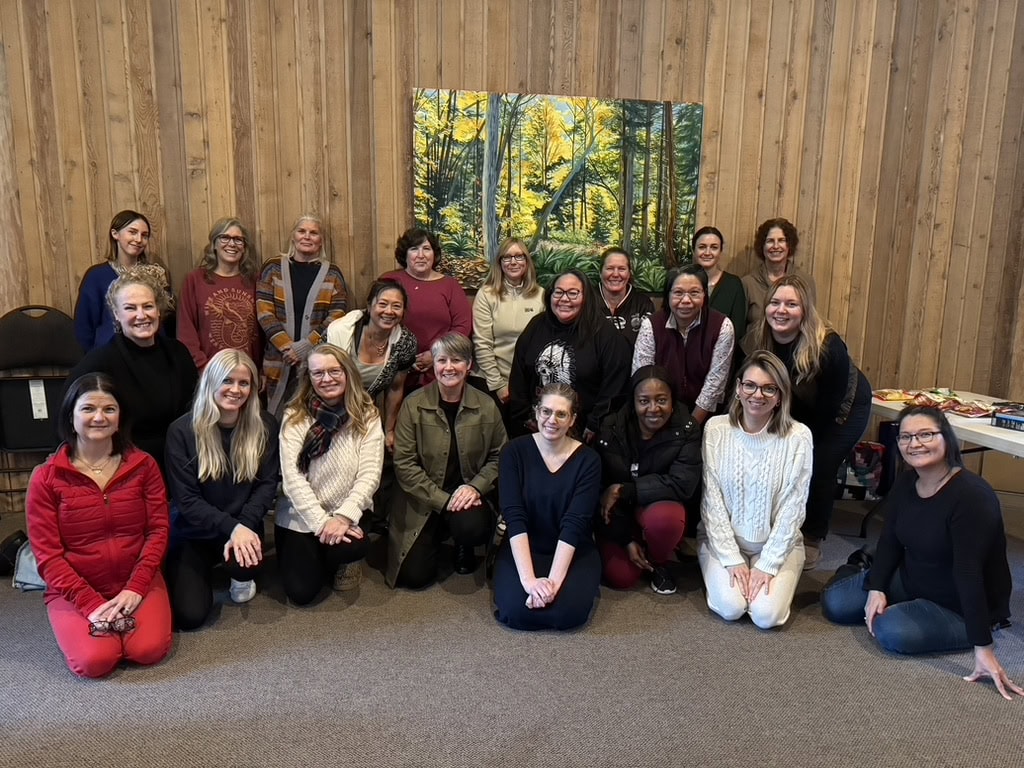I had the pleasure of facilitating an amazing group last week, where we explored well-being beyond the prescriptive and the “shoulds.”
Exploring Well-Being Beyond the ‘Shoulds’
Together we stepped away from any rigid or predetermined guidelines, rules, or frameworks that dictate how well-being should look or be achieved. We explored well-being in a more personal, flexible, and individualized way rather than adhering to societal norms, expectations, or standard advice.
Abandoning the Expected: A Freestyle Workshop Experience
I even blew up my timeline in favour of a freestyle approach that invited the participants to abandon “good manners” (sit still, listen politely) and the norms of how they thought a workshop should go.
The Unshaming Paradigm: Inspired by Process-Oriented Facilitation
It was uncomfortable to abandon some of the “exercises” I had planned in favour of navigating authentic dialogue, questions, curiosity and challenges to the unshaming paradigm-shifting concepts I introduced hot out of David Bedrick’s 10-month Process Oriented Facilitation certification. I practiced a sharper edge of “not getting anyone anywhere” that ontological coaches are accustomed to practicing. Instead, I witnessed the human expression in all its splendour, the quiet, the active, the defiant, the sorrowful, the playful, the critics, the transparent, the right/wrongs, the yea buts and more. It all caused a delightful rumbling and reckoning within me that landed softly on authenticity and a lightness of being. I witnessed, held space and witnessed some more.
“Shame is a weight that keeps us from standing tall in our truth. Unshaming is the act of shedding that weight, allowing us to embrace our authentic selves.” David Bedrick
Reclaiming Emotions: What Unshaming Taught Me About Rage
What I love the most about this work is that it gently illuminates all the ways we fix, subdue, make wrong and diminish the parts of ourselves we can least be with. Our rage, hatred, jealousy, envy, aggression etc. We work so hard to breathe it out, to calm ourselves, to meditate, to manage our rage, to be positive, to be kind, compassionate, less triggered and then feel ashamed when we “slip up”.
Self-Compassion and Sovereignty
We pathologize ourselves and others, operating like something is wrong with us, “she’s a hot head,” and make it permissible for others to tell us we’re “too much.”
Somatic Signals: Listening to the Body’s Wisdom
What we try to erase in shame silences our true selves and disconnects us from our deeper intelligence. Reclaiming the parts of ourselves that we’ve been attempting to erase enables us to reconnect with our soul’s purpose and humanity. This process allows us to listen to our bodies as much of the work is done somatically.
Unshaming Rage: Insights on Embracing Emotions, Self-Compassion, and Accountability
I’ve spent this year unshaming rage in particular, and here’s what I’ve learned:
- Understanding the Roots of Rage: By exploring rage (rather than calming it down), I gained insight into the medicine in my body’s expression of rage.
- Acknowledging and Validating Emotions: Instead of dismissing or suppressing intense emotions (think about the ones you hide from others), I learned to acknowledge them fully. Witnessing emotions in this way ironically helped to reduce their intensity and created space for healthier expression. That was not the intention but a natural outcome of the unshaming way.
- Foster Self-Compassion: I lash out defensively when I feel ashamed of my anger. My anger isn’t the thing that causes me to lash out. My anger flashes when my boundaries are repeatedly crossed and ignored. And then I feel ashamed, “I should be more easygoing.” I dismiss the anger, but it doesn’t go away; it builds, compounded by shame, until it comes out sideways. What about you? Some folks seethe, stone wall, withhold, ignore. When we unshame with intentional self-compassion, we accept our humanity and honour our sovereignty. The need to lash out disappears, and a lightness of being arrives. Again, this is not the intention but simply a natural outcome of the process.
- Cultivate Accountability: The unshaming process emphasizes taking responsibility for one’s actions without being consumed by guilt or shame. This balance helps us to recognize how our anger affects others and encourages constructive change.
- Learn New Responses: By unshaming, we can explore and unpack reactive patterns to learn about the wisdom and medicine in the reaction. An eventual outcome might be channelling anger into advocacy or a creative endeavour but not to fix it, suppress it, or get rid of it.
To quote David, “The unshaming way is not just another healing modality or protocol. It’s a radical paradigm-shifting orientation about our healing.”
Step Into the Unshaming Way
Experience it for yourself – Book a session and discover the impact first hand!





